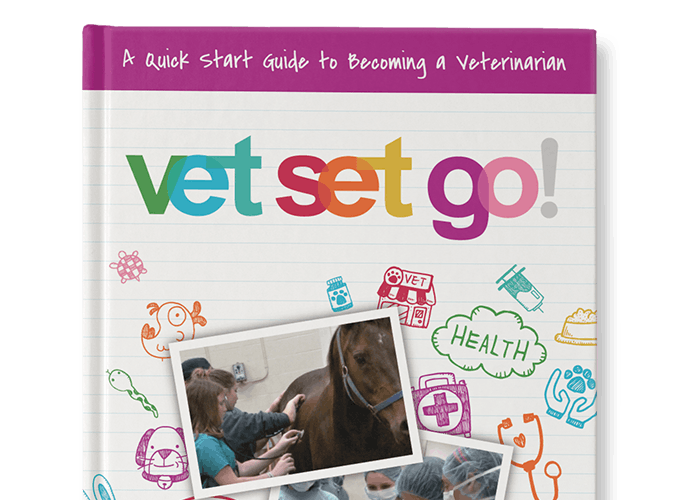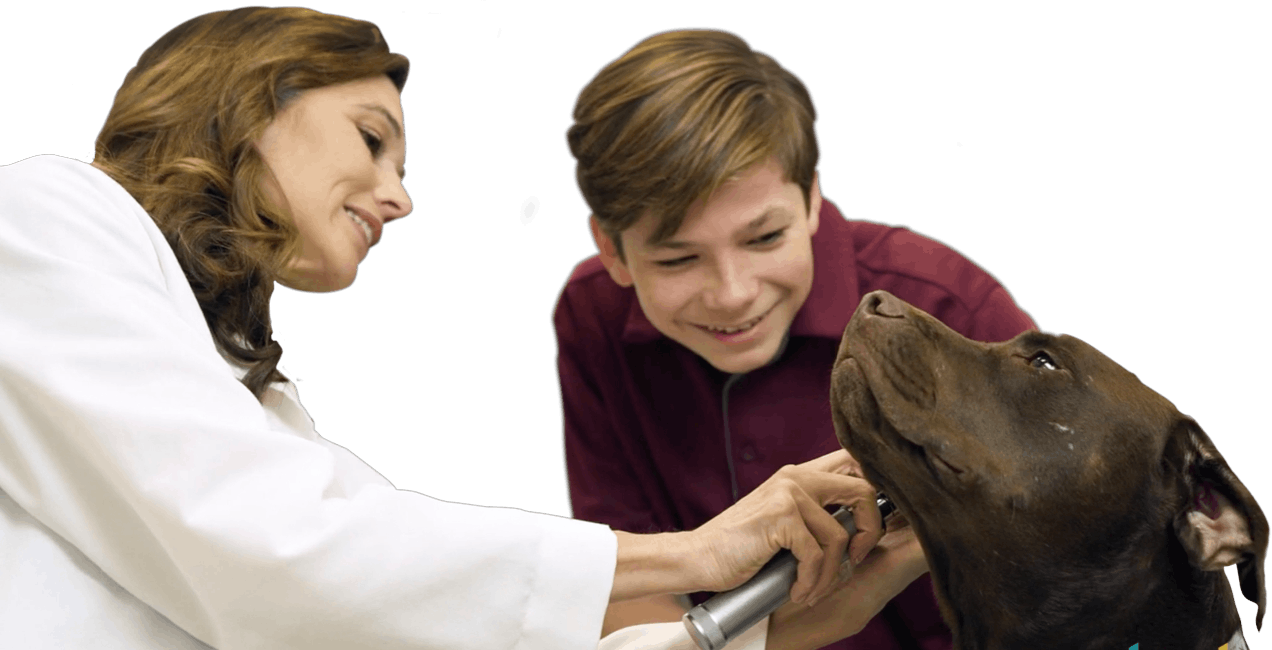Vet Set Go! Hardcover Book

Learn Online At Vet Set Go Academy

When a student decides to become a veterinarian, all they want to do is get out and explore their dream. They want to get out and work with animals in any setting they can find. They also want to get “hands on” experience in veterinary medicine. They look for any opportunity to shadow a veterinarian or volunteer at a veterinary hospital to learn what a career in veterinary medicine would be like. What most aspiring veterinarians don’t know is they need to be tracking their veterinary, volunteer, and animal experience hours every day they are out getting experience.
Veterinary colleges want students who have experience. The average student accepted to veterinary college has about 1,500 hours of veterinary experience and about 700 hours of animal experience. When you apply to a veterinary college, they will expect you to share the number of volunteer hours and explain what you did during the days you were working. For this reason, aspiring veterinarians need to be tracking their volunteer hours every time they volunteer.
Veterinary colleges want students who have experience.
Don’t be fooled by the “requirements” that veterinary colleges list. The reality is that the average accepted student has many, many more hours than that. For example, officially, the University of California, Davis, School of Veterinary Medicine requires at least 180 hours of hands-on, quality veterinary experience. However, admitted applicants have an average of 1,475 hours of quality “hands-on” experience in the veterinary field. Other schools report similar applicant averages. Michigan State University said students in a recent incoming class had an average of 1,850 hours. University of Tennessee said many applicants have well over 2,000 hours.1
The admissions committees do not distinguish between volunteer and paid work. What they are looking for is candidates who have gotten out and explored veterinary medicine and animal care. They want candidates whose experience have given them a realistic idea of what they are getting into. They want candidates who have a good feel for the profession and that is why veterinary experience is important. It is why you need to track your hours
Now that you understand the importance of logging your hours of experience, what is the best way to do it? In the past, the top two ways pre-vet students tracked their hours was in written journals or using Excel spreadsheets on their computer. Today, there is a better option - the Vet Volunteer App.
The Vet Volunteer App is the first and only app designed for aspiring veterinarians. It makes the logging your animal or volunteer work so easy. You just enter the date, the number of hours, the types of experience you gained and write some brief notes on what you did that day. That’s it. You experience is logged and available to you whenever you want to access it.
What makes the Vet Volunteer app special is that it also helps aspiring veterinarians find locations. The Vet Volunteer app provides the first ever directory of locations that have a shadowing or volunteer program. These are proven locations entered by other pre-vet students who have volunteered at these locations in the past. Learn more here.
Remember, download the app and track your experiences at the end of every day you volunteer and work. It is important to capture what you did right away, while things are fresh in your mind, and you can remember the details of your day. You will glad you did when the time comes to apply to veterinary colleges.
1. VIN.com, "How Much Pre-veterinary Experience is Enough?" Lisa Wogan August 3, 2017

Sign up to comment and share stories with future veterinarians just like you!
Comments Add Comment
Want to add a comment?
In order to comment you need to login or join Vet Set Go